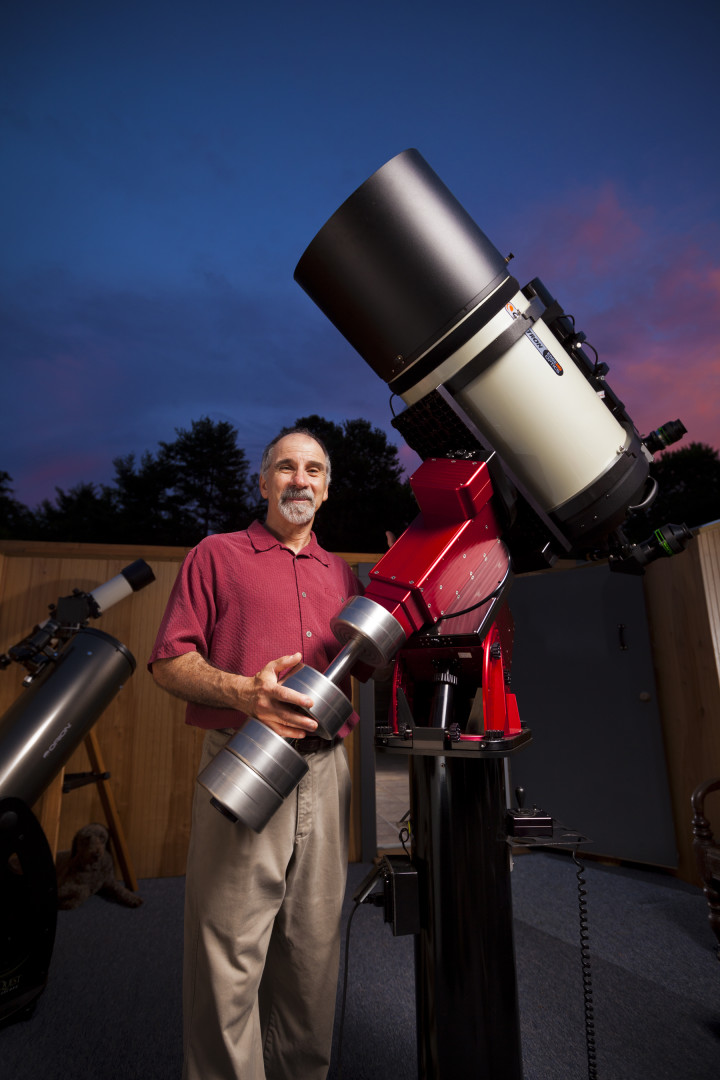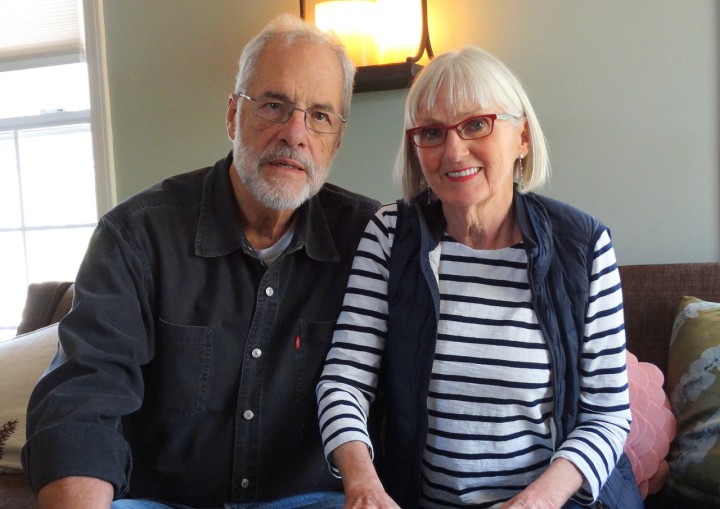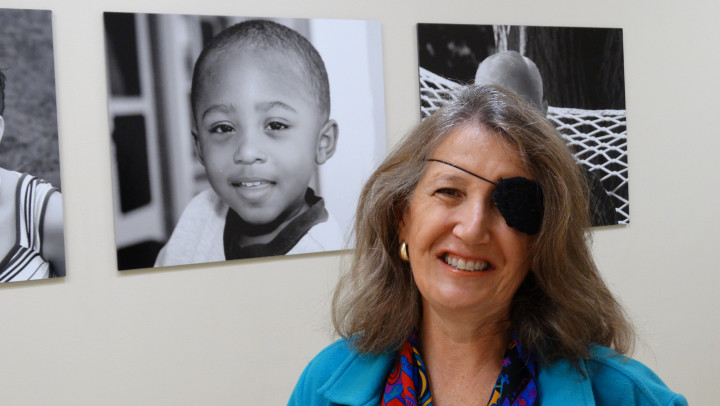Contributions to The Community Foundation of Western North Carolina are gifts that literally keep on giving. By investing donated funds and using the earnings in the years to come, the nonprofit provides a legacy for its donors. It now oversees more than $240 million in assets and puts that money to work in the form of grants and scholarships in the 18 westernmost N.C. counties.
Last year, the foundation distributed $14.2 million to local groups and individuals, including a record $346,500 in scholarships for 175 students, while continuing to maintain and grow its asset pool. That brought its cumulative total to $165 million in community support across the region since 1978.
The group focuses its giving in four areas: early childhood development, food and farming, natural and cultural resources, and people in need. Board members and staff make site visits to help them stay up to date on pressing regional issues, so they can direct donors’ money to the right places. Last year alone, donors contributed $10.5 million.
You’re never too young to give
Bernard Arghiere remembers the first time he gave to a charity. He was 21 years old.
“It wasn’t a lot of money, but it’s how it all starts,” says the retired software developer. “You start young, you start with small gifts, and then you get a passion for certain causes.” Growing up in a household with a mother who volunteered regularly, Arghiere saw philanthropy in action from a very young age.
“My mother never told me that I needed to do this too: It just made sense,” he recalls. By age 22, Arghiere had zeroed in on The Nature Conservancy, which he still supports through donations and service on the North Carolina chapter’s board.

“Find something you have a passion for and give something — even if it’s just $10 or $15. And then, give your time,” Arghiere suggests. “Time is important: Everyone has some special skill, whether it be picking up garbage on the side of the road or helping make financial board decisions, which they can contribute,” he points out. “I’ve done and still do both of those.”
Now 67, Arghiere has been active in the community for years. “I’ve served on boards and volunteered for a lot of nonprofits,” he reveals.
When Arghiere and his wife, Holly, moved to the Asheville area in 1992, they began searching for a way to make their donations have a more lasting impact. They considered setting up their own foundation but ultimately opted to partner with The Community Foundation of Western North Carolina, which directs two funds for the family.
Arghiere says he liked the way the organization helped them identify multiple causes and organizations that fit their interests, which include social justice, science, astronomy clubs and environmental causes. And though the bulk of their philanthropy is concentrated in Buncombe County and WNC, they also support statewide environmental groups.
Arghiere advises those interested in supporting a particular organization to look at how much it spends on overhead, to ensure that most of the gift directly supports the group’s mission. He also recommends assessing how true to its mission that organization is and how effective in getting the job done. Which projects will the money you give actually be supporting?
Beyond that, however, Arghiere encourages potential donors to broaden their scope by giving to a community foundation. “There are lots of unmet needs in this community that aren’t being taken care of by the government, and someone has to step up,” he points out. “When you have some resources, you have to know when enough is enough, and realize when it’s time to help some other folks out.”
In addition to his philanthropic activity, Arghiere is a volunteer instructor for the Osher Lifelong Learning Institute at UNC Asheville, teaching astronomy-related courses in the College for Seniors.
Philanthropy starts with the heart
People give to charities for many reasons — to help address issues important to them, to honor family traditions, to leave a lasting legacy, or perhaps to obtain a tax deduction.
But whatever your reasons, consider what’s most important to you and follow your heart, urges Lisbeth Riis Cooper, co-founder of the CooperRiis Healing Community. “Is your heart in it? Is it something you believe in? Is it something you feel good about?”

She and her husband “believe in homegrown philanthropy,” says Riis Cooper, who serves as vice chair of the nonprofit’s board and is also its design director and photographer. The couple favors “organizations where we know what’s going on and we believe in their higher purpose,” notes Don Cooper, adding that they discuss all of their financial gifts very carefully.
“We find ourselves more aggressively supporting organizations that we are personally involved in,” Riis Cooper reveals. The healing community, which helps people with mental illness or emotional distress gain skills to become independent and attain greater fulfillment in life, receives a large portion of the family’s philanthropy. Other areas of interest include the environment, education and land preservation. “You give because the more you give, the more you get back,” she explains. “It feels good to know that you’re making a difference.”
Like many other supporters of charitable activities in the region, the couple relies on The Community Foundation of WNC to help manage their donor-advised fund, which they started more than 20 years ago. Cooper, a community foundation board member for nine years, is now on the organization’s investment committee. He’s also a Warren Wilson College trustee and serves as board chair of the CooperRiis Healing Community.
“I have a theory: You accumulate assets during a certain period of your life; then there comes a point where a switch flips and you move from accumulation to distribution of assets,” he reveals.
That switch inspired the couple not just to give more but to think about creating a lasting legacy.
“In our combined philosophy, we feel as though we don’t want to leave all our accumulated assets to our children: We want them to experience and enjoy the fulfillment of their own lives without infusion from [us],” Cooper explains. Thus, their major goal is to create a lasting trust “that will deal with philanthropy when we are gone.”
The community foundation will take over direction of the trust at that point, continuing to support causes that the couple has outlined, hopefully with input from their children.
“It’s a good feeling to know you’re doing something that’s bigger than you, that’s greater than you,” says Riis Cooper. “Because after a while, how many pairs of shoes can you own? How many cars can you buy?”
Supporting nonprofits is good business
Shelley Brown’s parents and grandparents supported assorted nonprofits, so it was only natural that she would too. “Philanthropy is a family tradition,” notes Brown, an attorney who recently retired from Pisgah Legal Services. “It was an expectation to become involved with it.”
Brown’s grandfather, she reveals, “was the secretary of commerce under Eisenhower, and when he stopped serving in the position after President Kennedy was elected, he started volunteering for various nonprofits. As a little child, I could see that his nonprofit work was as important to him as his professional work.”

But even if supporting charitable efforts wasn’t part of your family culture growing up, that doesn’t mean you shouldn’t get involved, she maintains. “Giving back is as much an obligation as brushing your teeth. Without community support of the nonprofits, they can’t do their work.”
And while that work is important at the spiritual and moral levels, continues Brown, it also yields practical benefits that help communities succeed.
“When people think about moving to Western North Carolina and relocating a business here, one of the things they look at is how stable the community is,” she points out. “If there’s a lot of homeless people out on the street, high crime rates, poor health care and poor schools, people are not going to want to come to the area.”
To prove her point, Brown cites the example of downtown revitalization. “Downtown in the late ’70s, early ’80s was a scary place to be at night. Now, you go downtown and it is so vital,” she notes. “That happened, in part, due to a group of philanthropic, civic-minded people that said, ‘For Asheville to continue, we can’t have the center of it decaying. We need to have a healthy downtown.’”
The combination of philanthropic and government money sparked change that’s been good for businesses, the community and homeowners, Brown asserts.
As part of her own giving strategy, Brown volunteers for Pisgah Legal Services; she also has a fund with the Community Foundation of WNC that supports social justice and educational initiatives, including Pisgah Legal, MANNA FoodBank, Homeward Bound and many other local groups. “It’s not just local organizations that I support and direct funds to: It’s also out-of-state organizations,” she notes. When Brown set up the fund back in the early ’80s, she found the community foundation an invaluable resource.
“When I first started giving, I would get knowledge about an organization, and as I learned more about it, I would want to contribute to it,” she recalls. “From the beginning, the community foundation has helped inform me about the community’s needs and the nonprofit organizations working here. If there’s an organization that I don’t know about or am confused about, I can check with the people at the community foundation and learn more about it.”




Before you comment
The comments section is here to provide a platform for civil dialogue on the issues we face together as a local community. Xpress is committed to offering this platform for all voices, but when the tone of the discussion gets nasty or strays off topic, we believe many people choose not to participate. Xpress editors are determined to moderate comments to ensure a constructive interchange is maintained. All comments judged not to be in keeping with the spirit of civil discourse will be removed and repeat violators will be banned. See here for our terms of service. Thank you for being part of this effort to promote respectful discussion.